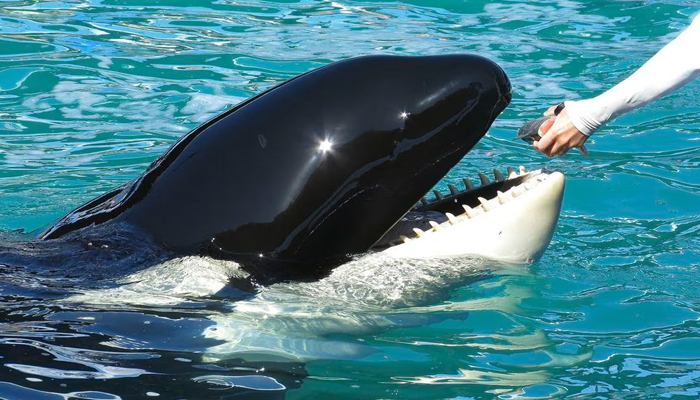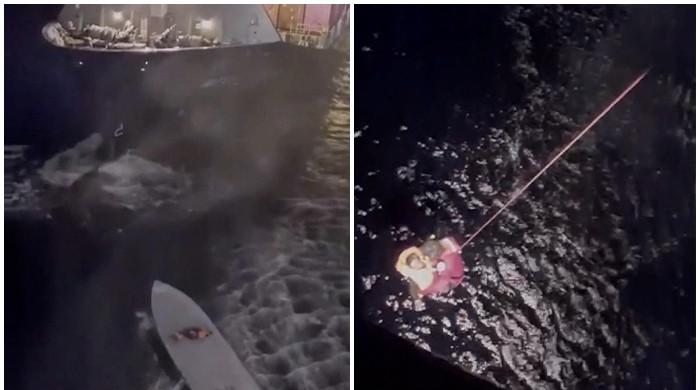Killer whale Lolita going to home waters after 50 years of captivity
The natural sea area for Lolita release has been identified where its family still swims, advocates say
April 01, 2023

Lolita, the killer whale that bewitched tens and thousands with its incredible acrobatics at Miami Seaquarium, will be sent back to its natural habitat in the Pacific Northwest, CNN reported as its captors have decided to end its fifty-year-old captivity.
After it was taken from the ocean in 1970 officials disputed its origin from where it belonged.
Eventually, on Thursday, after the agreement by various parties, it was decided that Lolita — also known as Tokitae or Toki- will be returned to the ocean.
Miami Seaquarium in a statement said: "Lolita will receive the highest quality care as the team works to make relocation possible in the next 18 to 24 months."
"I know Lolita wants to get to free waters. I don’t care what anyone says. She’s lived this long to have this opportunity. And my only mission is (…) to help this whale get free," said Jim Irsay, the Indianapolis Colts owner who is helping to pay for Lolita's move.
Irsay also said that the cost of relocating it could reach eight figures.
Lolita's tank
The announcement was made at a press conference addressed by Eduardo Albor, CEO of The Dolphin Company — operating the Miami Seaquarium, Miami-Dade Mayor Daniella Levine Cava; and other members of Friends of Lolita.
According to Miami Seaquarium, the killer whale was 57 years old.
The orca's tank is 80- feet long and 35 feet wide and it remains in it as it has not performed for a year.
The life expectancy of the orca is up to 90 years and it weighs up to 11 tons and can grow up to 32 feet, according to National Oceanic and Atmospheric Administration.
Its 95-year-old mother is also believed to be alive in the ocean.
According to CNN, the natural sea area for Lolita release has been identified where its family still swims.
Charles Vinick, the executive director of the Whale Sanctuary Project said that “[There's] the opportunity for her to acoustically connect with her family, without a doubt. So, acoustically, yes, and potentially physically over time.”
The whale will be housed in a natural sea pen in Washington state and will remain under monitoring and observation where it will be taught to hunt for its prey.
“That hopefully will lead to eventually her getting out of the gate, getting free, getting with her pod,” Jim Irsay said.
“We’re here because we all care deeply about the health and well-being of this beautiful creature, and I’m very happy to be here for this historic announcement to begin the process to return Toki to her home waters,” the mayor said. “So many have worked prayed and hoped for this result for many, many years. The most important thing is Toki's long-term well-being and together, guided by the experts, we’ll continue to do what is best for her.”
Lolita as a 'symbol'
Miami Seaquarium was acquired by the Dolphin Company after the dispute over Lolita.
CEO Albor said in the press conference while recalling a visit with her daughter at the seaquarium that his commitment began then when her daughter got upset about its captivity.
“This is beyond Lolita. She is going to become a symbol.”











